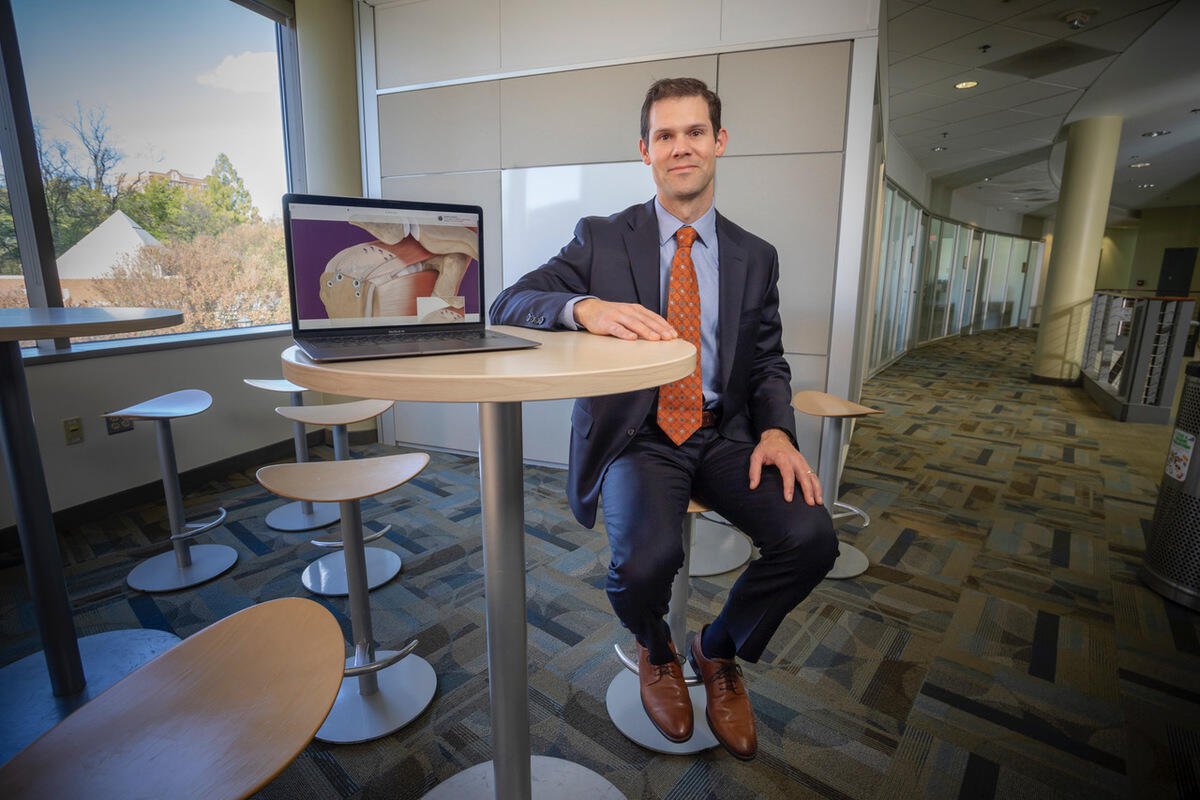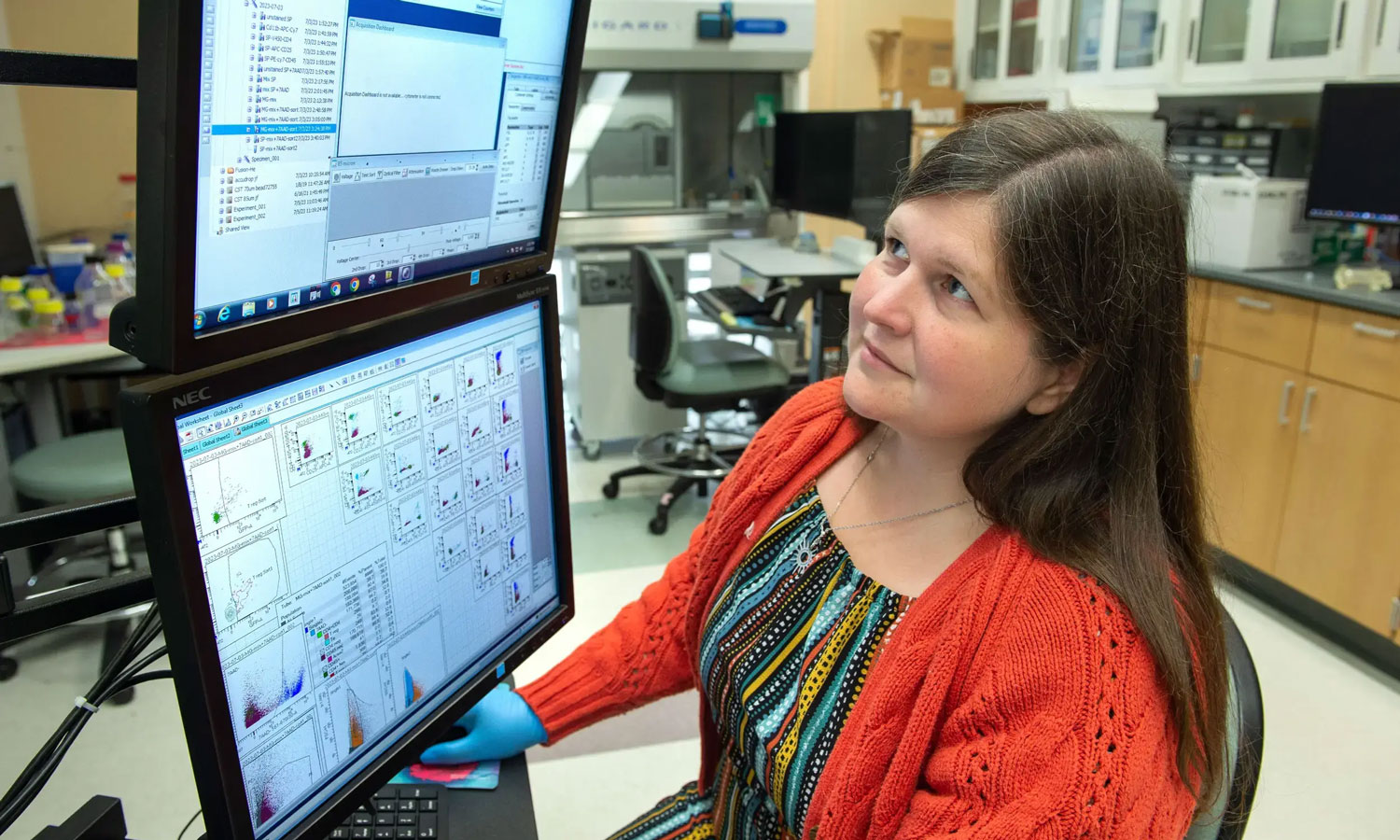At Virginia Commonwealth University, more inventors than ever are taking the leap to become entrepreneurs. Since July 2022, VCU TechTransfer and Ventures has licensed laboratory discoveries and other inventions developed by faculty and trainees to 12 startup companies.
At the heart of its mission, TechTransfer and Ventures helps commercialize university inventions for the benefit of the public. In anything created at VCU, the university and inventor share in the intellectual property’s trials and hopeful triumphs. When startups are formed, they focus on commercializing a specific IP – and the pace of startup creation has accelerated since TechTransfer and Ventures assumed that responsibility in 2021.
To navigate that intersection of academic science and business creation, TechTransfer and Ventures established a startup support program to guide science-minded researchers. The lead researcher usually joins the startup, typically as chief scientific officer. Other researchers on the academic team may have a role in the business, too.
Not all IP is suited for a startup – indeed, for many years, the office’s focus has been on licensing IP to existing companies. But some inventions may work as an actual business, which can lead to job creation and products to sell.
The TechTransfer and Ventures startup team includes two primary entrepreneurs-in-residence tasked with supporting researchers whose IP could work as a more structured company. More startups have been formed in the past two years than any other time in VCU history.

“Startups can be a critical tool to commercializing university technology,” said Gerard Eldering, an entrepreneur-in-residence and interim director for new ventures at TechTransfer and Ventures. “One of the challenges university researchers face is that the technology they’ve developed isn’t mature enough to attract a large company. So, often, it’s the startup that’s the mechanism to allow them to grow the IP, then attract funding and then mature the product — their invention — enough to where somebody in the industry is going to be interested in partnering or acquiring it.”
Time, talent and targeted results
Using experts at VCU, throughout the region and in the inventor’s industry, TechTransfer and Ventures looks to refine the IP, form and expand operations teams, and eventually make a revenue-generating exit, such as an acquisition by a larger company or an initial public offering on a stock exchange. A successful exit means the university and researcher earn proceeds from the exit, royalties from product sales or a combination of the two.
The process can take years.
Eldering has spent more than 15 years working with university tech-transfer teams, and fellow entrepreneur-in-residence Richard Pellegrino brings more than 35 years of experience in medical device sales and entrepreneurship. They are forging relationships with potential VCU startup partners or eventual buyers: In addition to the 12 startups formed in the past year, more are in the pipeline – and five are considered “priority” status due to their stage of development.
One of those high-potential startups is Sarcogenics, led by Michael McClure, Ph.D., an assistant professor in the VCU College of Engineering’s Department of Biomedical Engineering. The company has developed a “scaffolding” material used to treat soft-tissue orthopedic injuries.
“The entrepreneurs-in-residence at VCU really helped our team by providing guidance that assesses the markets and types of injuries on which we should focus our time,” McClure said. “It’s information that has allowed us to develop our IP in a manner that will be valuable.”
Creating value for bigger firms
Rebecca Martin, Ph.D., has long worked with TechTransfer and Ventures to secure patents on her IP, as many researchers do. But last year, the assistant professor in the VCU School of Medicine’s Department of Microbiology and Immunology began working with Eldering to form a business around her technology, a pipeline of drugs that could provide relief to allergy sufferers.
“His consulting was invaluable in being able to develop our company,” said Martin, now a co-founder of Pleros Therapeutics. Its leading product is a molecule drug that targets enzymes involved in allergy responses, specifically asthma.

Eldering connected Martin and Pleros co-founder Anuj Tharakan to attorneys as well as investors and entrepreneurs with expertise in pulmonary therapies.
“They gave us great feedback on where our positioning is and what we need to do to get funding and hit milestones for our IP and company,” said Martin, who depending on time of day is wearing her academic hat or chief scientific officer one with Pleros. “Since Gerard came along, things have been rolling for us.”
Eldering and Martin noted that a startup was the right direction for her technology in order to move it to a stage where it could be acquired by a larger pharmaceutical company. Martin said those companies typically want to buy proven and “de-risked” assets without having to spend time developing them.
“To develop a drug, you really have to do it yourself, and forming a startup and getting it funded is the way to do that,” she said.
Funding and firsthand experience
As part of its acceleration of startups, TechTransfer and Ventures has focused in part on funding. Eldering has helped connect researchers to CEO candidates, product experts or consultants who specialize in applying to the U.S. Small Business Administration’s SBIR or STTR grants, which are geared toward university researchers in the early stages of their IP work.
In addition to serving TechTransfer and Ventures, Eldering is CEO of Perfusion Medical Inc., which is developing a drug to stop hemorrhagic shock caused by severe blood loss. Its solution, called PEG-20K, was invented by Martin J. Mangino, Ph.D., a professor of surgery, physiology and biophysics in the VCU School of Medicine’s Department of Surgery.
With his relationships and understanding of the process, Eldering was able to secure two grants from the U.S. Air Force’s venture capital and innovation arm, AFWERX. VCU also has received more than $12 million from the U.S. Army over the past decade to develop PEG-20K, and Perfusion has raised more than $1 million to help bring the drug to market.
Eldering knows firsthand that forming a startup can seem complex and even scary.
“In reality, it doesn’t have to be that way. It is complicated, but there’s a set of steps in the beginning that can be taken….to set near-term goals and ways to achieve them,” he said. “That’s what we’re here for.”
An impressive recent roster
Here are the 12 startups that have executed licenses on VCU IP since July 2022:
* Rapid Forensic Cell Typing: Christopher Ehrhardt, Ph.D., professor in the College of Humanities and Sciences’ Department of Forensic Science.
* Pascal Medical: Barbara D. Boyan, Ph.D., executive director of the College of Engineering’s Institute for Engineering and Medicine.
* Light Switch Bio: Matthew C.T. Hartman, Ph.D., professor in the College of Humanities and Sciences’ Department of Chemistry.
* Lighthouse XR/The TST Retreat: Jarrod Reisweber, Psy.D., affiliate assistant professor at the College of Humanities and Sciences’ Department of Psychology and clinical psychologist, Central Virginia VA Health Care System.
* InVaMet Therapeutics: Paul B. Fisher, M.Ph., Ph.D., professor in the School of Medicine’s Department of Human and Molecular Genetics and director of the VCU Institute of Molecular Medicine.
* VivaMed Management Inc.: Yan Zhang, Ph.D., professor in the School of Pharmacy’s Department of Medicinal Chemistry and a member of the VCU Institute for Drug and Alcohol Studies.
* AmpedRNA Biosciences: Guizhi “Julian” Zhu, Ph.D., former assistant professor in the School of Pharmacy’s Department of Pharmaceutics.
* ArcheVR: Nicholas Thomson, Ph.D., associate professor in the School of Medicine’s Department of Surgery and director of research in the VCU Health Injury and Violence Prevention Program.
* Pleros Therapeutics: Rebecca Martin, Ph.D., assistant professor in the School of Medicine’s Department of Microbiology and Immunology.
* RAM Phantoms: Ravi Hadimani, Ph.D., associate professor and director of biomagnetics laboratory in the College of Engineering’s Departments of Mechanical and Nuclear Engineering and Biomedical Engineering.
* ThermaGel: Massimo Bertino, Ph.D., professor in the Department of Physics in the College of Humanities and Sciences.
* Symple Solutions: Carl Elks, Ph.D., associate professor in the College of Engineering’s Department of Electrical and Computer Engineering.
